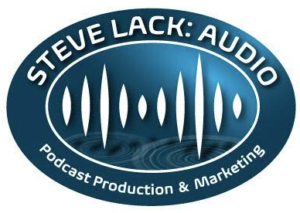WIFTI Summit 2012
Saturday, November 30, 11:45 a.m.
Speaker: Dara Marks
Writer: Elizabeth McGraw-Austin, Women in Film & Video Member

Dara Marks’ talk on using the Hero’s Journey in script writing was inspiring and thought provoking. Her approach to storytelling takes what we know about about story structure and extends it.Marks kept the packed room rapt with her insights on psychological transformation as a dramatic kernel. She believes that, as humans develop, we construct our stories. We look at our human realm through our human eyes and say, “this is what I know so far”. We all have family stories, as well as local, regional, national, global, cultural and archetypal stories.She believes that, like sex, story and narrative effect us in an enjoyable way so that we propagate the human psyche by telling stories. “Story” is an organic template, the ubiquitous way that the human psyche understands…anything. Her technique for working with writers involves looking at their personal stories and helping them use what they know on a deep, personal level.
“Story is the human instruction manual,” she says. “We are all the same except in the detail… when you have the courage to tell me your truth, you are telling me my truth.” As a writer, “your obligation is to tell your truth as you know it. ”
“To have a theme takes courage,” she says, “ it takes time, it takes long walks in the park.”
“Everything past three seconds becomes a memory”, she says, and “memory is the narrative of what went on,” But this means that we live in two worlds simultaneously, one where things happen to us, the other where we are processing our experiences internally.
Too often, stories get stuck in movement, action and activity. Marks’ approach works, she says, “to take story out of the realm of narrative structure and to make it something that you recognize in your existence.”
“The human psyche has no need to spend time on what it already knows,” she says. Rather, there is “a call to know the next thing we need to know.”
Marks feels that a good film is “a film that stays inside of us.” Themes need to be about us and the decisions we are making today.
“When you are creating your story,” she says, “if you can take it to this interior level, then you’ve got a home run.” Interior elements are the way the film stays alive and resists being finger wagging, even while giving the viewer food for thought. Using interior elements to move through the themes in a script gives an aliveness to the story.
The writer starts at the point of creating, saying to themselves, “I don’t know why, but wouldn’t this be cool?” This is stage one. It is intuitive– the writer takes the story idea and “throws it on the page”. This stage is messy and one sided.
Stage two involves processing- moving from unconscious content to conscious content. By stage three, the writer is able to express their theme into the world.
The transformational, or heroic, arc reflects how a character grows and changes. Building the transformational arc recognizes that things change, the result of progress is change, a new order, new life. Life must evolve or it will decay and die.
The more we understand the transformational arc through our own life experience, the better we are able to use it as writers. Look at how your own character has been created– how you have faced life’s obstacles. Use these insights to inform your writing.
About the Writer: Elizabeth McGraw-Austin, Women in Film & Video Member
Elizabeth McGraw-Austin is a hands-on video producer, writer and editor who uses words, images and sounds to inform and entertain. The blog for her documentary in progress, “An Inconvenient Car,” tracks thoughts about how the day-to-day choices we make can impact climate change.
Like us on Facebook https://www.facebook.com/WIFVDC
Follow us on Twitter: https://www.twitter.com/WIFV_DC
Follow our Blog: http://wiftisummit.wordpress.com

















